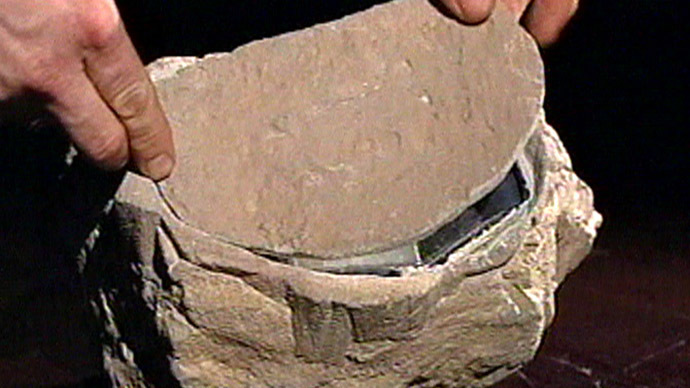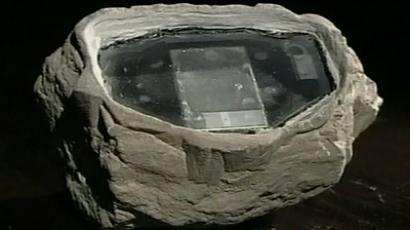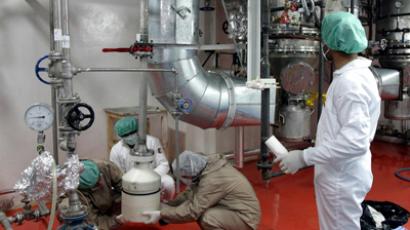Rock, paper, surveillance: US Army investing in smarter ‘spy rocks’

Hi-tech weapons manufacturer Lockheed Martin presented its latest effort in surveillance technology this week – a web of self-organising sensors with the ability to trigger any kind of device from a distance and have it operating autonomously.
The presentation took place at the annual meeting of The
Association of the United States Army (AUSA) that took place
Monday through Wednesday.
The goal of the defense contractor’s much lauded “field and
forget” technology is to offer vast coverage at little
operation cost, as well as the ability for units to remain in
sleep mode and without maintenance for years on end. It relies on
the sun for power, Wired reported from the meeting.
The official name given to the technology is SPAN – or Self-Powered Ad-hoc Network – a “covert, perpetually self-powered wireless sensor network” that offers its users “unobtrusive, continuous surveillance” at sizes so small it could fit into a rock.
When remotely triggered, the self-organizing sensors can do
anything from starting up a camera to ordering a computer to
alert human personnel when a civil structure is in danger or
simply disrepair.
The SPAN system was originally introduced last year. Earlier in
2013, a former Lockheed Martin subcontractor made headlines by
trying to sell an earlier prototype of the “surveillance
rock” a few years ago for $10 million. The original idea had
had been scrapped by the manufacturer and did not come to
fruition.

However, the high-tech rocks being marketed now are an entirely
new invention. The company proudly announced that the concealed
nature of SPAN sensors allows them to “reduce the likelihood
of discovery and tampering.”
This comes on the heels of an embarrassing incident involving
British intelligence and Russia, in 2006, when British spies used
a fake rock in a Moscow park to exchange information between
agents and embassy staff.
At the time, a report on Russian television claimed there was
proof that British spies were using electronic equipment hidden
inside a fake rock to exchange information between agents and
embassy staff. The British government of then-PM Tony Blair
initially denied using the spy rocks, but in 2012 his chief of
staff at the time, Jonathan Powell, admitted to the surveillance,
calling it “embarrassing.”
Iran also discovered a spy rock, at the site of a uranium
enrichment site, in September 2012.
While troops were patrolling the classified site’s perimeter,
they found a monitoring device in a rock. When they had
approached it, the device exploded; it was presumably rigged to
self-destruct on approach.
It was not clear who was behind placing the device at the Iranian
nuclear facility, but Israeli, British and American agents have
reportedly been actively involved in surveilling Iran’s military
and unclear activities, given the countries’ fear of a
nuclear-capable Iran.














